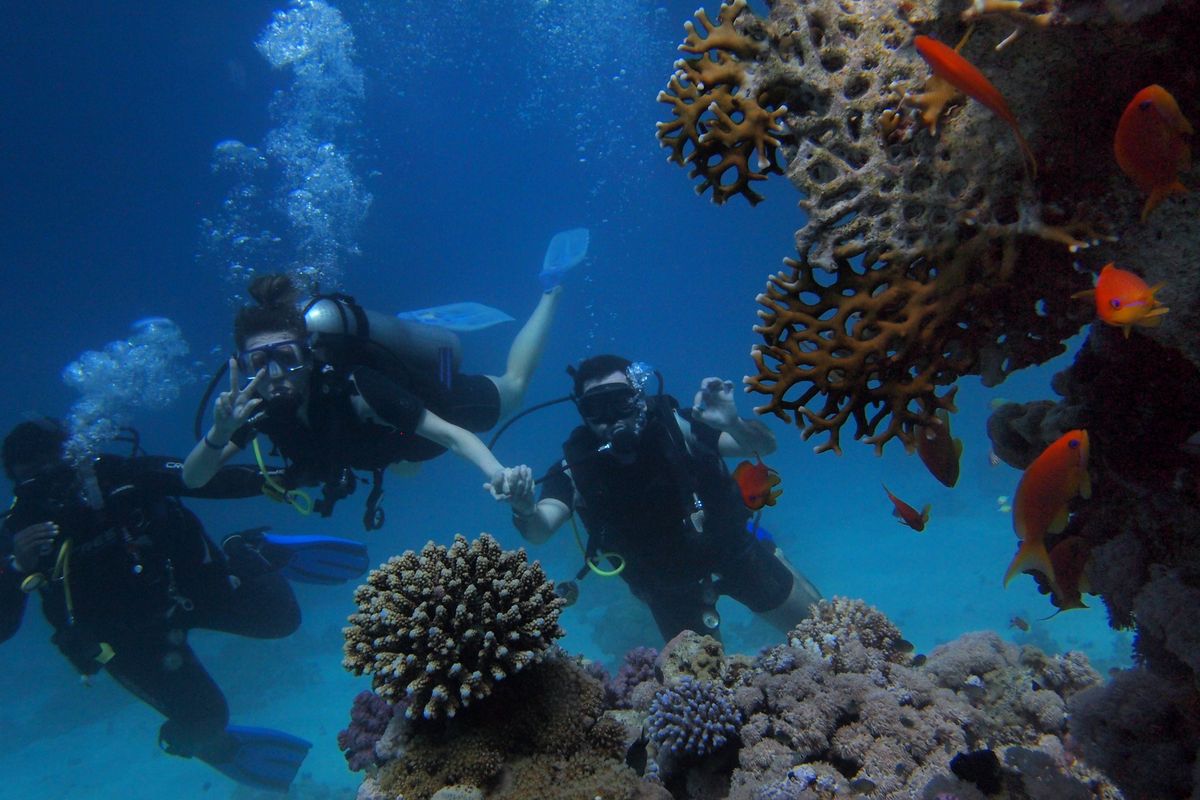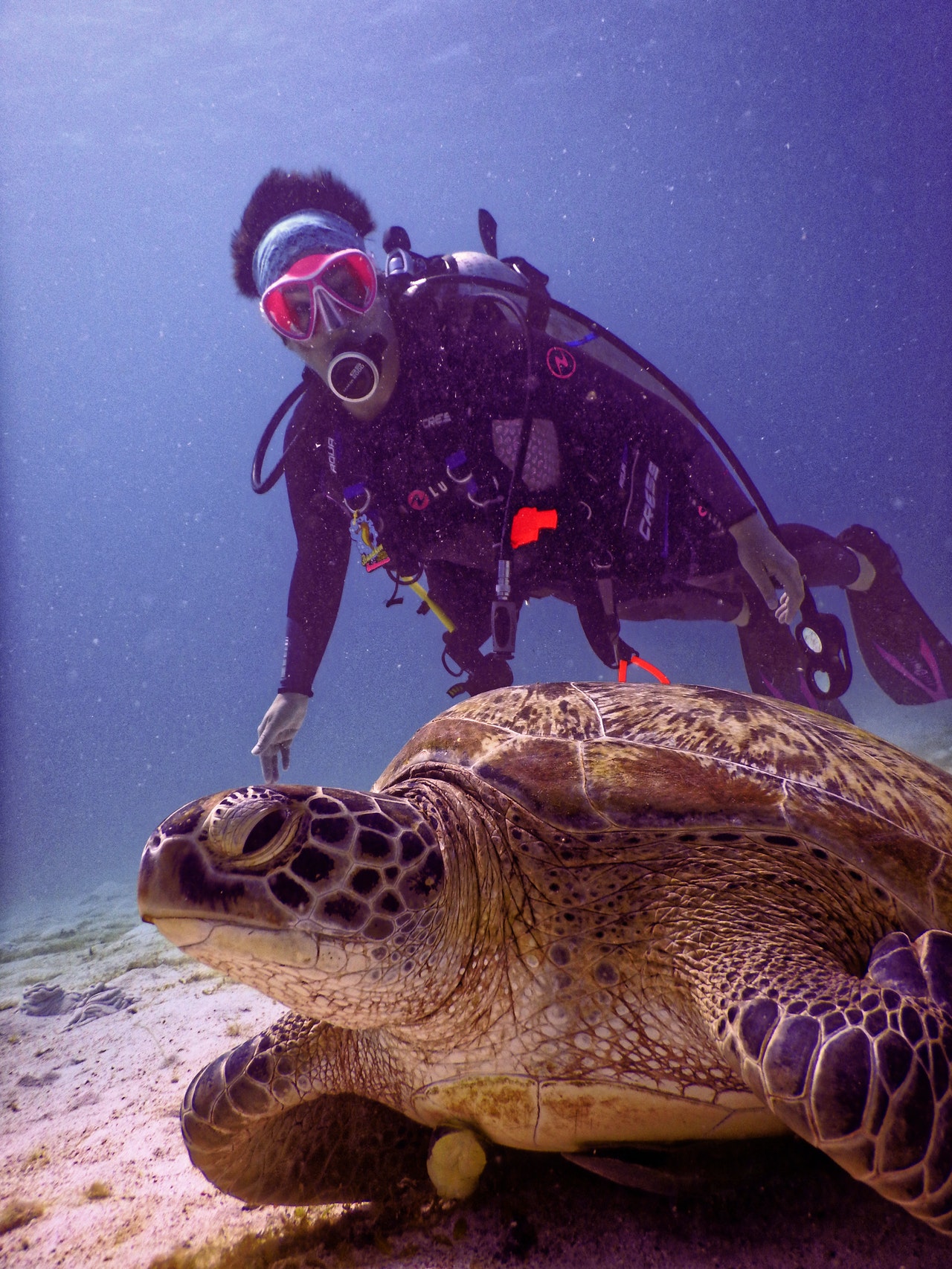Your guide to getting scuba diving certified in Hong Kong

A few minutes every morning is all you need.
Stay up to date on the world's Headlines and Human Stories. It's fun, it's factual, it's fluff-free.
You’re probably thinking that scuba diving and Hong Kong aren’t two things you usually hear in a sentence. However, buried under the water’s surface in Hong Kong are colorful coral beds flooded with wildlife. It’s a hidden secret that there is another world right under our noses.
Snorkeling is one way to observe sea creatures, but don’t expect to get up close and personal by hovering only on the surface. Scuba diving is one of the best ways to become one with your surroundings without having to worry about going up for air. It’s a perfect way to uniquely experience the ocean. Whether you’re preparing for your next trip to Bali, or simply want to experience scuba diving, why not start right here by getting scuba diving certified in Hong Kong?
Rich and diverse sea life awaits
Local divers tend to stick around the Sai Kung waters, as they are undoubtedly the most diverse waters in Hong Kong. According to the Swire Institute of Marine Science (SWIMS) of the University of Hong Kong, around 5,943 species have been recorded in these waters.
Some common sightings include the exquisite lionfish, If you’re a fan of Nemo, you’ll be glad to know that clown fish are also locals to the water. If you’re lucky and the season is just right, you might even spot sea turtles or rare sea horses.
If you’re worried about sharks, you can pack up that fear because shark sightings are extremely rare in Hong Kong. Even when they are sighted, they are usually peaceful and harmless. So count yourself lucky if you encounter a shark, because there are many people that wish to observe one closely, While getting your certification, you’ll have the opportunity to explore the incredible islands near Sai Kung including Nine Pins, the East Dam and Port Island.
Getting scuba diving certified in Hong Kong

Before you begin, it’s good to research the scuba certification you would like to achieve. The most popular organizations include PADI and SSI, but both have different requirements, so see which one suits you best.
Professional Association of Diving Instructors (PADI) is one of the world’s leading scuba diver training organizations, founded in 1966. Scuba Schools International (SSI) was created in 1970 and is slowly climbing up the ranks as a recreational scuba and freediving training and certification agency. But no pressure – both organizations are valued around the world and all diving centers accept the certification (PADI Open Water certification is equivalent to SSI Open Water certification).
In Hong Kong, the prime time for scuba diving is from March to November as the winter water’s can get too cold to confront. You would be surprised to learn that Hong Kong had plenty of diving centers to choose from, and it can be overwhelming to go through them all.
While looking for a school, it’s important to consider their accreditation and check the reviews to ensure that other divers have had a positive experience. Both English and Cantonese courses are offered, so a language barrier shouldn’t be a worry. Scuba diving is always more fun when you have a friend to share it with, so try to convince others to join with you. Plus, you’ll have a diving buddy for when you finally start making dives on your own.
Achieving your certification
Once you have chosen your center and booked your first session, get ready for some intense yet fun training. To achieve your open water certification, you will need to complete confined water lessons (training in a swimming pool), 4 open water dives (in or around Sai Kung) and diving theory, which can be done individually during your own time. There is a short multiple choice exam at the end, but as long as you read through the material, you’ll surely pass with flying colors.
During the pool sessions, you’ll practice all the skills you’ll need in order to dive safely in the ocean. This includes wearing the regulator, understanding the equipment, hand signals and buoyancy (just to name a few). Once you’ve mastered these skills, it’s time for what you’ve all been waiting for – time to hit the ocean!
Prepare yourself, because your day out on the boat is going to be exhausting, but 100% worth it. Logging your first dive into your log book will be one of the most fulfilling feelings, knowing that you’ve made it to getting scuba diving certified in Hong Kong.
Is your business doing something cool that you want to show off? Get in touch at hello@themilsource.com




Comments ()